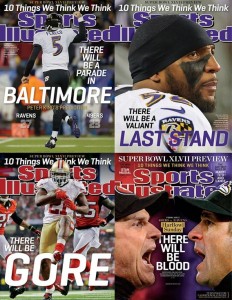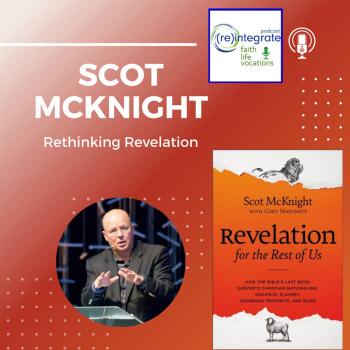To the extent that sports is America’s civil religion, the Super Bowl represents its most important religious festival.
One aspect of what makes sports so powerful is that they are so intertwined with other powerful realities: politics, economics, and culture to name but three.
- The National Anthem serves as an invocation, as well as a military fly-over, and often a recorded message from the President.
- The astronomical price of advertising during the Super Bowl is common knowledge and accentuates the economic power that sports have come to embody.
- While sports have an obvious universal appeal, each culture has its own games and national imperialism often has sport as a key element (think of the prominent way that Americans emphasize (and proselytize) baseball, basketball, and American football around the world), but have been slow to accept hockey (from Canada), and soccer, rugby, and cricket (from Europe).

All of this comes together in the spectacle of the Super Bowl.
Football is a fall sport, but its championships are played in the winter. College’s champion was crowned a few weeks ago, and now all eyes have turned to the American crown jewel of sports: the NFL, and it’s crowing moment – the Super Bowl.
Yes, sports have become America’s civil religion. The Super Bowl represents its most important religious festival. There are regularly serious petitions set out to make the Monday after the Super Bowl a national holiday. It is the culmination of a year’s worth of sporting events, set to restart itself with the basketball season, and just-around-the-corner, Major League Baseball’s spring training.
If the Super Bowl is the chief religious festival in the United States, that makes this week a sort of “Holy Week” (and in true America style – our Holy Week actually last two weeks – with the additional week off between the conference championship games and the Super Bowl). There will be non-stop talk about the game, the teams, the half time show, the commercials, past Super Bowls, past Super Bowl MVPs, the current state of football, and any other obscure, quasi-related topics that they can find. And finally, the game will be played, after the seven hour pregame show, crowning a new champion who will be “going to Disney World” . . . and then . . . the whole year will start over again.
Stating that the Super Bowl is a religious festival is neither to affirm that as a positive cultural trait, or to chastise it as all too secular. It’s simply an observation of our culture. This weekend, our nation will be littered with Super Bowl parties, tailgate parties (inside, of course, in my part of the country!), fun and game. It’s the one time of the year that, even if you don’t care the slightest for sports, come next Monday, if you don’t know what happened the day before, people will look at you like you’re Amish.
In any regard, I have no interest in the teams that are playing this year (other than the fact that as a Browns fan, I never root for the Ravens), but I will watch all the same. I will enjoy a fun evening with people from my church, as well as friends from our neighborhood. It seems to me to be the perfect night for America to truly embody the ethos of the New Testament ideal of koinonia . . . it’s just disappointing that it takes a sporting event to draw us together like this.
In his book The Holy Trinity of American Sports, Craig Forney explores the elements of America’s civil religion in our three most popular sports: football, basketball, and baseball which he believes, “form a trinity of ‘major sports’ working together each year in portrayal of the national worldview” (16). Forney, among others, point out that the ebbing and flowing of American culture is largely dictated by its sports. Rather than January ushering in the start of a new year, baseball’s spring training, and college basketball’s March Madness provide a more accurate occasion for a new year. Coinciding with the renewing of nature in spring, these spring sports capture the imagination of the American public and catapult us forward into a new season. As sports continues its burgeoning throughout the cultural landscape, at both subtle and overt levels, sports dictates the framework within which much of culture operates – whether one is a sports fan or not.












